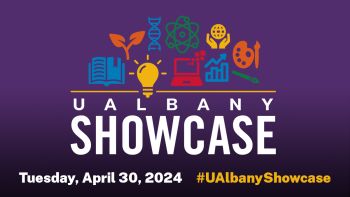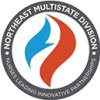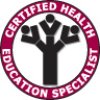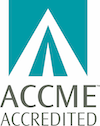Showcase 2024: School of Public Health Senior Probes Role of News Media in Perpetuating Harmful TikTok Trends
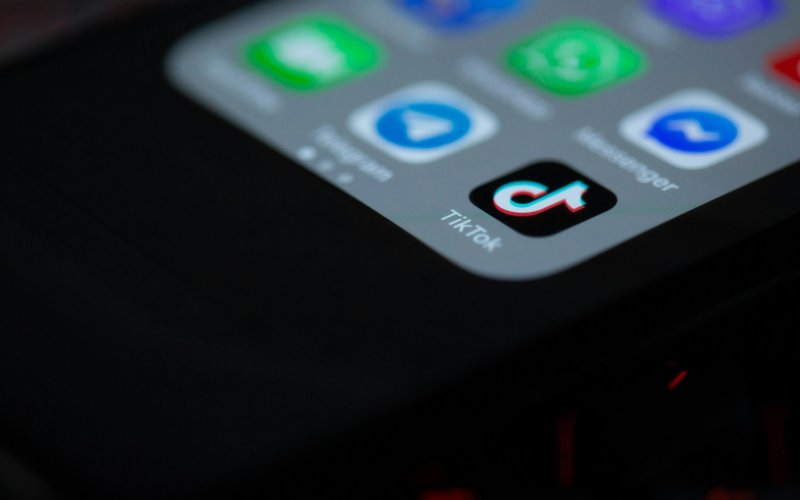
By Erin Frick
ALBANY, N.Y. (April 9, 2024) — Growing up, University at Albany senior Michael Jakakas knew he wanted to someday enter a helping profession. With an interest in human wellbeing, Jakakas was counseled to explore public health.
“I’ve always wanted to help others,” said Jakakas. “But I also knew that I didn’t want to be a doctor. That wasn’t for me. Therefore, I was relieved when my freshman honors advisor Kathryn Fore suggested that I try public health for my intended major, and I have never looked back. Something about it felt right. The information I was learning was both opening a new world for me while also making me feel right at home. That’s how I knew this was the field for me.”
As part of UAlbany’s Honors College, Jakakas has been working on a senior project, which he will present at the School of Public Health poster fair during Showcase on April 30. His research focuses on the social media platform TikTok, and how news outlets cover viral TikTok challenges wherein people post videos of themselves undertaking activities that can involve risk of bodily harm. The work contributes to broader conversations around the role of social media and public health.
“For my senior project, I wanted to study a topic that aligned with the type of work I would pursue in the field,” Jakakas said. “After discussing with my faculty advisor Jennifer Manganello, we decided to conduct a content analysis on how news media covers TikTok challenges.
“A problem with this coverage is that it can sometimes be too detailed, and inadvertently provide viewers with a ‘how-to guide’ to undertaking a dangerous challenge. This is of particular concern when children are among the viewers. We chose this topic because we felt it was both current, while also not heavily discussed.”
To complete this analysis, Jakakas has been using the LexisNexis database to collect and analyze U.S. news coverage of TikTok challenges, focusing on coverage from January 2018 through December 2023. Part of the analysis involves identifying whether injuries were mentioned in the news coverage, what sort of injuries occurred and details about who was involved in the incident. Results from this analysis can help inform educational resources for parents, as well as guidance for journalists about how to cover these challenges without perpetuating harm.
Jakakas will graduate in May with a double major in public health and human development. He will then return to the School of Public Health in the fall to pursue his Master of Public Health degree, with a concentration in Health Policy and Management.
Ahead of his Showcase presentation, Jakakas shared insights on his field of study, current research and future plans.
Do you think social media is an important health communication tool?
I think social media is both a very important and useful way to communicate health information. Because of its lightning rod viral nature, it is an effective way to get information—not just health related—to a staggering amount of people in a short span of time. However, misinformation can easily spread just as quickly, which can create hurdles in communicating proper, science-based research to the public. It’s a balancing act, and one that can get out of control quickly, creating chaos with negative impacts to human lives. If health departments and related organizations can get their information out first, before the misinformation ramps up, then I can see social media-based health communication as useful.
What have you found so far in your study?
Because content analysis is still ongoing, we are discovering new things every day. Patterns are starting to emerge that suggest some news media outlets cover TikTok challenges, or events that are consequences of doing a given challenge, in a way that could perpetuate additional negative incidents. By giving a detailed explanation of how the challenge was performed, this could encourage certain demographics, especially young people, to try the challenge themselves.
Thus, the news media have the potential to spread challenges that would otherwise exist only in the social media sphere, to the broader public. At the same time, news coverage has the potential to educate parents about these challenges so they can be aware of what their children may be exposed to. We also see examples where reporters share ideas for ways to head-off potential negative health outcomes associated with these challenges.
We hope to provide guidance to journalists based on the results of our study.
Do you plan to continue research in the future?
If a given topic appeals to me, I would be delighted to research it further to uncover new details. I believe that to be the best at my career, I have to constantly be open to exploring new information and researching how it could impact others. I especially take interest in topics that concern children and families, as they are often the targets of several industries that could impact their health either positively or negatively. Even if I don’t conduct research, it is likely I will need to understand research results as part of my work. Conducting research gives me a better understanding of what goes into the research process.





